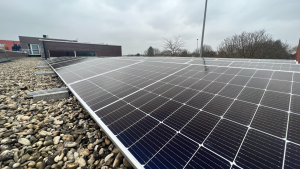It's finally here! Winter is officially over and spring has arrived. Of course, that also means a lot of energy benefits! Besides the fact that the weather is simply becoming much more pleasant, there are other benefits you might not have thought about yet. There are several benefits of spring that can lead to savings on your energy bill, below you can read which ones!
Influence of spring
- Less heating: As the weather gets warmer in the spring, there is less need for heating in the home. Your home is going to cool less at night and get more natural heat during the day. This allows you to turn down the thermostat and save on heating costs.
- More natural light: Spring brings with it more natural light, so you need less artificial lighting. As a result, you use less electricity for lighting. In addition, natural light also brings more pleasant temperatures. This allows you to slightly raise the temperature in your home simply by opening the curtains. This in turn allows you to turn the thermostat down a bit and save energy.
- Lower cooling costs: In spring, the temperature is usually not yet so high that you need the air conditioner or fan. As a result, you save on cooling costs. It's also still pleasant enough outside to just open the windows for extra cooling.
- More options for drying: In the spring, you can dry your laundry outside instead of using the dryer. This saves energy and reduces your utility bills. Then, if it is necessary to use your dryer, you can do so with the output of your solar panels. After all, these are going to yield considerably more in the spring than in the winter.
Also impact your energy bill?
It's important to remember that how much you save on your spring energy bills depends on several factors, including the climate you live in, the size of your home, and your own energy consumption habits.
However, this also applies to the output of your solar panels in the spring versus the output in the winter. It is difficult to say exactly how much more solar energy solar panels will generate in the spring compared to the winter because it depends on a number of factors, including the location of the panels, the orientation of the roof, and weather conditions.
In general, however, solar panels are expected to generate more energy in the spring than in the winter because of the increase in sunlight hours and intensity. In winter, the days are shorter and the sun is lower in the sky, so there is less solar energy available to generate.
Some studies suggest that solar panels can generate up to 30% more energy in the spring than in the winter. However, this may vary depending on location, weather, and individual circumstances.





